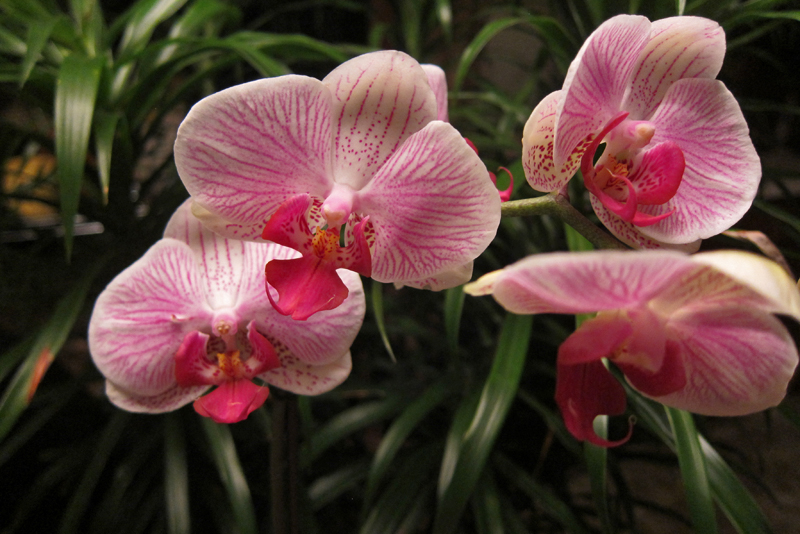Ecotourism

One of the current good news items in the debate on global warming and conservation is the rise of ecotourism. It is defined by The International Ecotourism Society as "responsible travel to natural areas that conserves the environment and improves the well-being of local people." There are two very important concepts in this definition "conserves the environment" and "improves the well being of local people."
What I feel is the most important point is that ecotourism encourages native populations to protect their natural environment rather than exploit it by cutting and burning or by over-harvesting native plants. Their livelihood thus becomes intertwined with the vitality and life of their environment and they are encouraged to protect their natural resources. Conservation efforts are important to their continuing income and therefore tend to be supported by the population. By bringing additional peoples into their areas, the additional benefits of being able to sell locally produced items is also enhanced.
One of the more interesting locations I've found is Ecuagenera in Ecuador. By combining orchid production, orchid sales, and ecotourism they have succeeded where many others have failed. They are the largest producer of orchids in the country with a state-of-the-art laboratory for commercial production of native orchids. They have purchased and maintain two reserves where orchids grow naturally and tourists can see the native plants in the wild. Their nursery produces seed grown plants for purchase keeping the wild populations safe. Tours of their own properties and throughout Ecuador are provided. In addition to the above, they founded a private school, funded by their orchid production which has 630 students. A part of their curriculum is dedicated to the study of orchids and how to grow them which provides jobs for the students while they are studying if they need to help pay for their education.
Several of the large conservation charities such as Conservation International (CI) have incorporated ecotourism in conjunction with parks they support. One of the earliest of such joint ventures is Chalalán Ecolodge in the Bolivian Madidi National Park with the village of San José de Uchupiamonas. Visit their website at Conservation International to find information on more innovative ecotourism sites.
There are, of course, many sides to the ecotourism issue and some conservation groups feel that building hotels in bio-diversity areas is counterproductive. Encouraging the local populations to become stewards for their native environment and making it economically feasible for them to continue to live and work in harmony with that environment will, in my estimation, be much more productive than simply creating nature preserves. Changing the way these people look at their environment will provide much longer term sustainable protection. As you think of your next vacation, consider some of the ecotourism destinations to help sustain our environment and support the people who live and maintain that environment.
What I feel is the most important point is that ecotourism encourages native populations to protect their natural environment rather than exploit it by cutting and burning or by over-harvesting native plants. Their livelihood thus becomes intertwined with the vitality and life of their environment and they are encouraged to protect their natural resources. Conservation efforts are important to their continuing income and therefore tend to be supported by the population. By bringing additional peoples into their areas, the additional benefits of being able to sell locally produced items is also enhanced.
One of the more interesting locations I've found is Ecuagenera in Ecuador. By combining orchid production, orchid sales, and ecotourism they have succeeded where many others have failed. They are the largest producer of orchids in the country with a state-of-the-art laboratory for commercial production of native orchids. They have purchased and maintain two reserves where orchids grow naturally and tourists can see the native plants in the wild. Their nursery produces seed grown plants for purchase keeping the wild populations safe. Tours of their own properties and throughout Ecuador are provided. In addition to the above, they founded a private school, funded by their orchid production which has 630 students. A part of their curriculum is dedicated to the study of orchids and how to grow them which provides jobs for the students while they are studying if they need to help pay for their education.
Several of the large conservation charities such as Conservation International (CI) have incorporated ecotourism in conjunction with parks they support. One of the earliest of such joint ventures is Chalalán Ecolodge in the Bolivian Madidi National Park with the village of San José de Uchupiamonas. Visit their website at Conservation International to find information on more innovative ecotourism sites.
There are, of course, many sides to the ecotourism issue and some conservation groups feel that building hotels in bio-diversity areas is counterproductive. Encouraging the local populations to become stewards for their native environment and making it economically feasible for them to continue to live and work in harmony with that environment will, in my estimation, be much more productive than simply creating nature preserves. Changing the way these people look at their environment will provide much longer term sustainable protection. As you think of your next vacation, consider some of the ecotourism destinations to help sustain our environment and support the people who live and maintain that environment.
You Should Also Read:
Photographing orchids in the wild
World Land Trust and Orchids
Orchid Profile - Jewel Orchids

Related Articles
Editor's Picks Articles
Top Ten Articles
Previous Features
Site Map
Content copyright © 2023 by Susan Taylor. All rights reserved.
This content was written by Susan Taylor. If you wish to use this content in any manner, you need written permission. Contact Anu Dharmani for details.





